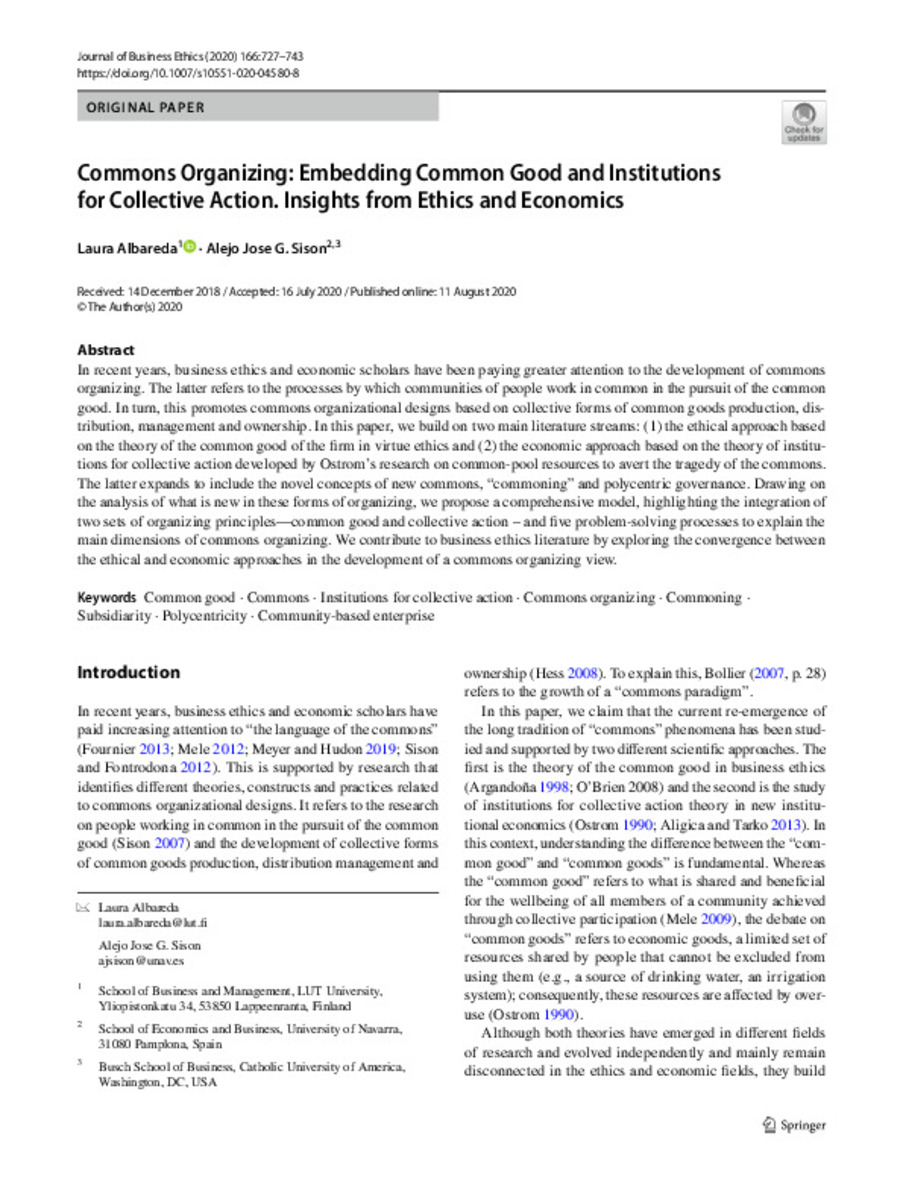Commons Organizing: Embedding Common Good and Institutions for Collective Action. Insights from Ethics and Economics
Palabras clave :
Common good
Commons
Institutions for collective action
Commons organizing
Commoning
Subsidiarity
Polycentricity
Community-based enterprise
Fecha de publicación :
2020
Nota:
This article is licensed under a Creative Commons Attribution 4.0 International License
Cita:
Albareda, L. (Laura); Sison, A.J. (Alejo José). "Commons Organizing: Embedding Common Good and Institutions for Collective Action. Insights from Ethics and Economics". Journal of Business Ethics. 166, 2020, 727 - 743
Aparece en las colecciones:
Estadísticas e impacto
0 citas en

0 citas en

Los ítems de Dadun están protegidos por copyright, con todos los derechos reservados, a menos que se indique lo contrario.








